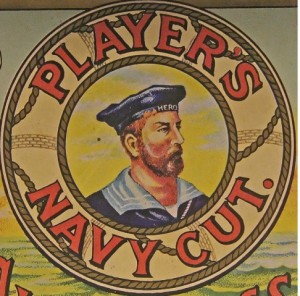 Maritime Masculinities, 1815-1940
Maritime Masculinities, 1815-1940
19th- 20th December, 2016, Oxford, UK
Keynote speakers include:
Dr Mary Conley, College of the Holy Cross, USA
Prof. Joanne Begiato, Oxford Brookes University
Dr Isaac Land, Indiana State University, USA
The Department of History, Philosophy & Religion, Oxford Brookes University, and the Port Towns and Urban Cultures group, University of Portsmouth, invite proposals for a conference concerning Maritime Masculinities, 1815-1940.
Whilst much has been written about masculinity in the maritime sphere in the eighteenth century, rather less work has been carried out on this domain of research in the nineteenth and the first half of the twentieth century; a period that saw significant changes in both areas.
The period from 1815 – 1940 saw the demise of the sail ship, and the rise of the machine-driven steam, and then oil-powered ships. It began as a period of both naval and maritime supremacy for Britain, which was subsequently eroded during two world wars. After a century of frequent naval warfare, there was the advent of the Pax Britannica, and the phenomenon of navies which barely fought. Moreover, popular navalism emerged in advertising, pageantry, and popular literature, and was the subject of photography and then film.
Cultural ideals of masculinities also underwent considerable shifts in a period that in civilian life advocated differing styles of manliness including Christian manliness, muscular Christianity, and the domestic man, and in the armed forces deployed tropes of masculinity such as bravery, stoicism, and endurance to the extent that military and maritime models of manliness were held up as aspirational models for all men.
Such an immense array of changes shaped perceptions and representations of masculinity within maritime spheres and beyond. This conference seeks to analyse how such changes influenced change and continuity in popular understandings of masculine identity, manliness, and the seafarer.
Conference themes include, but are not limited to, the following topics:
- The effect of technological change, eliminating the skill of sailing, but necessitating the engineer
- The end of a century of war, the transition to civilian life and the phenomenon of the non-combative sailor
- The growth of maritime empires, and cultural contact with indigenous peoples
- The maritime man in material culture, fashion, advertising and the press
- Exploration and heroism
- Photography, art, and film
- Fiction, theatre, and music
- Sailors in port and at home
- Dockyards and shipbuilding
- Heritage, memory, and museums
Proposals are invited for short papers (20 minutes) and panel sessions (60 minutes).
Abstracts of up to 250 words are invited, and should be sent to maritimemasculinities@gmail.com
Deadline for abstracts: Friday, 20 May at midnight (GMT)
See website for more details or follow @MMasculinities










Comments are closed.